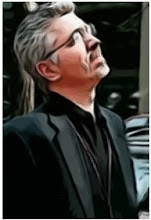I started out the class by riffing on the various possible relations between literature and labor within the title of our class, "The Literature of Labor." (A riff inspired by James T. Farrell's similar take on the possible meanings of proletarian literature in his
A Note on Literary Criticism (1936), pps. 78-79.) The question of how literature and labor are related has also, it seems to me, been a central question in both the major works we've read so far - - Davis's
Life in the Iron Mills and London's
Martin Eden.
To write this essay:
1) Select either Davis's or London's novel;
2) Think about the following question: To what extent does this work propose a conflict between literature and labor?
(Some other questions that may help to sharpen your thinking: How does this work depict the "class" nature of literature as an institution? What particular conflicts does a working-class desire to write "literature" lead to? What contradictions does a working-class writer of "literature" confront? How does a working-class artist judge his or her success? His or her failure? According to your text, can there ever be such a thing as working-class "literature"? According to your text, can a working-class writer or artist exist? If so, how? If not, why not?)
Your essay should be three pages or less. It should be double-spaced in font no larger than 12 point and no smaller than 11 point. Use examples and quotations to support your argument or interpretation. Proofread your essay - -I'll stop reading the text after the second error (punctuation, typographic, grammatical, or spelling). No emailed essays; the essay must be submitted in hard copy at the beginning of the class on which it's due.
If you have questions, or just want to discuss your ideas, come in and talk with me.
Due date: Thursday, September 30, 2008.








